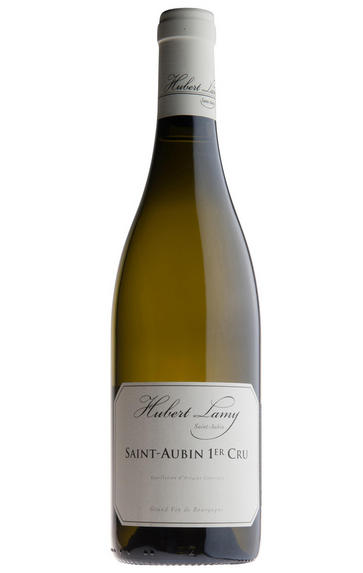
2016 St Aubin, En Remilly, 1er Cru, Domaine Hubert Lamy, Burgundy
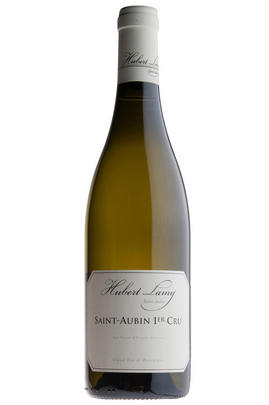
Critics reviews
Neal Martin - 29/12/2017
About this WINE
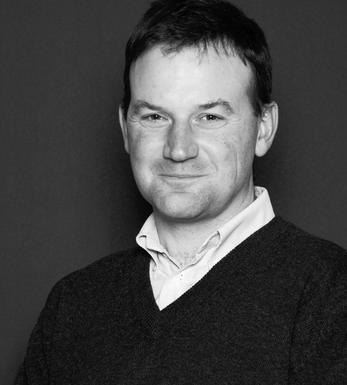
Domaine Hubert Lamy
There have been Lamys growing vines in St-Aubin since 1640 - today it is run by Olivier Lamy. Olivier is representative of a new breed of Burgundian grower keen to progress. He worked at Méo-Camuzet before taking over in 1996 from father Hubert. Olivier ceased supplying négociants in 1997, grubbing up and selling off peripheral vines, keeping only the best and oldest sites. Currently he is experimenting with different planting densities in a quest to capture even greater expression of terroir.
The domaine produces both reds and whites and now has 16.5 hectares of vineyards, mostly in St-Aubin but a few parcels in Chassagne-Montrachet and a tiny plot in the Grand Cru Criots-Bâtard-Montrachet. Yields are kept low and a recent innovation has been the introduction of selection tables in the cuverie to ensure that only the healthiest and ripest grapes are used.
Vinification is traditional and the wines are matured in oak casks (20-30% new) for 12 months before minimal filtration and then bottling. The quality is very high and is often superior to many wines from more fashionable villages that sell at twice the price.
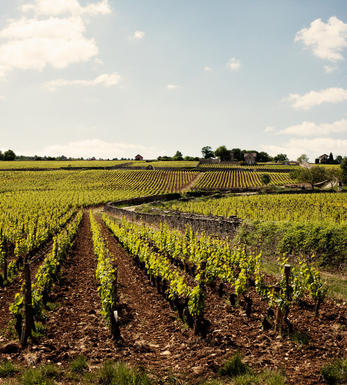
Saint Aubin
Though tucked away in a side valley behind the two ‘Montrachet’ villages, Saint-Aubin is a great source of fine, steely white Burgundy and some attractively fruity reds. Production used to be about 50:50 between the two colours, but the whites have become the more sought-after and now represent two-thirds of the crop. There is a significant difference however between the best Premiers Crus – such as En Remilly – and the vineyards tucked away further up the valley.
- 80 hectares of village Saint-Aubin
- 156 hectares of Premier Cru vineyards (15 in all). The finest include En Remilly, Murgers des Dents de Chien, La Chatenière, Les Frionnes
- Recommended producer: Hubert Lamy
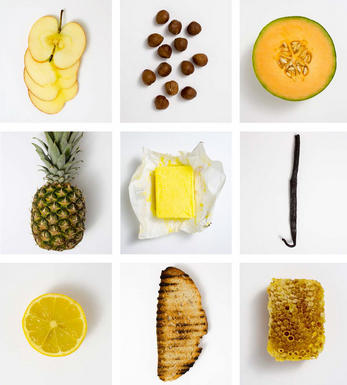
Chardonnay
Chardonnay is often seen as the king of white wine grapes and one of the most widely planted in the world It is suited to a wide variety of soils, though it excels in soils with a high limestone content as found in Champagne, Chablis, and the Côte D`Or.
Burgundy is Chardonnay's spiritual home and the best White Burgundies are dry, rich, honeyed wines with marvellous poise, elegance and balance. They are unquestionably the finest dry white wines in the world. Chardonnay plays a crucial role in the Champagne blend, providing structure and finesse, and is the sole grape in Blanc de Blancs.
It is quantitatively important in California and Australia, is widely planted in Chile and South Africa, and is the second most widely planted grape in New Zealand. In warm climates Chardonnay has a tendency to develop very high sugar levels during the final stages of ripening and this can occur at the expense of acidity. Late picking is a common problem and can result in blowsy and flabby wines that lack structure and definition.
Recently in the New World, we have seen a move towards more elegant, better- balanced and less oak-driven Chardonnays, and this is to be welcomed.


Buying options
Add to wishlist
Description
This vineyard is on the western side of the Mont Rachet, close to Puligny-Montrachet. This has a plumper feel to the palate, with more of the mealy, oaty character of that appellation. Not to be underestimated, there is splendid intensity to match the fruit and energy of the wine. Drink 2021-2027. Adam Bruntlett, Burgundy Buyer
There have been Lamys growing vines in St Aubin since 1640 – today the domaine is run by Olivier Lamy in succession to his father Hubert. Olivier ceased supplying négociants in 1997, grubbing up and selling off peripheral vines, keeping only the best and oldest sites. He has been experimenting with different planting densities in a quest to capture an even greater expression of terroir. Every single one of Olivier Lamy’s vineyards in St Aubin was completely frosted; only Santenay escaped. In a strange way, this was a benefit because, when the vines began to re-flower, they did so all at the same time and there was an homogeneity of growth and maturity. Furthermore, without two differently maturing sets of grapes to contend with, the crop made up the two-week delay imposed by the frost and Olivier was able to start harvesting in Santenay on 15th September, finishing his Bourgogne Blanc from his highest vineyards in St Aubin 10 days later. Olivier suggests the style is like a lighter version of 2014. Overall his production is down about one third.
wine at a glance
Delivery and quality guarantee